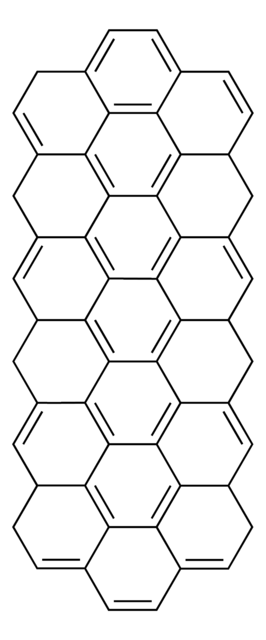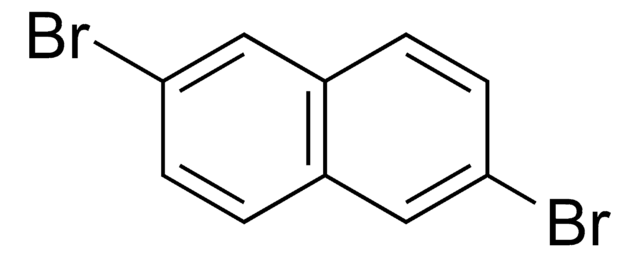808245
10,10′-dibromo-9,9′-bianthracene
Synonym(s):
10,10′-dibromo-9,9′-bianthryl, 10-bromo-9-(10-bromoanthracen-9-yl)anthracene
About This Item
Recommended Products
Assay
≥98% (HPLC)
Quality Level
form
powder
mp
348-352 °C
SMILES string
BrC1=C2C(C=CC=C2)=C(C3=C(C=CC=C4)C4=C(Br)C5=C3C=CC=C5)C6=CC=CC=C61
InChI
1S/C28H16Br2/c29-27-21-13-5-1-9-17(21)25(18-10-2-6-14-22(18)27)26-19-11-3-7-15-23(19)28(30)24-16-8-4-12-20(24)26/h1-16H
InChI key
NPNNLGXEAGTSRN-UHFFFAOYSA-N
Signal Word
Warning
Hazard Statements
Precautionary Statements
Hazard Classifications
Eye Irrit. 2 - Skin Irrit. 2 - STOT SE 3
Target Organs
Respiratory system
Storage Class Code
11 - Combustible Solids
WGK
WGK 3
Flash Point(F)
Not applicable
Flash Point(C)
Not applicable
Certificates of Analysis (COA)
Search for Certificates of Analysis (COA) by entering the products Lot/Batch Number. Lot and Batch Numbers can be found on a product’s label following the words ‘Lot’ or ‘Batch’.
Already Own This Product?
Find documentation for the products that you have recently purchased in the Document Library.
Customers Also Viewed
Our team of scientists has experience in all areas of research including Life Science, Material Science, Chemical Synthesis, Chromatography, Analytical and many others.
Contact Technical Service












